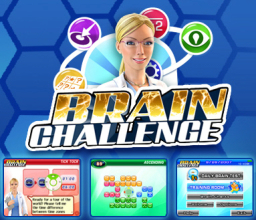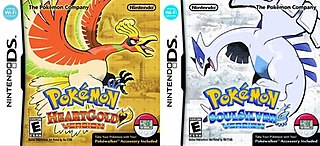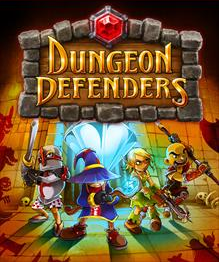A gamma wave or gamma rhythm is a pattern of neural oscillation in humans with a frequency between 30 and 100 Hz, the 40 Hz point being of particular interest. Gamma rhythms are correlated with large-scale brain network activity and cognitive phenomena such as working memory, attention, and perceptual grouping, and can be increased in amplitude via meditation or neurostimulation. Altered gamma activity has been observed in many mood and cognitive disorders such as Alzheimer's disease, epilepsy, and schizophrenia.
Age of Empires is a series of historical real-time strategy video games, originally developed by Ensemble Studios and published by Xbox Game Studios. The first game was Age of Empires, released in 1997. Nine total games within the series have been released so far as of October 28, 2021.

Brain Age: Train Your Brain in Minutes a Day!, known as Dr. Kawashima's Brain Training: How Old Is Your Brain? in the PAL regions, is an edutainment puzzle video game. It was developed and published by Nintendo for the Nintendo DS. Nintendo has stated that it is an entertainment product inspired by Tohoku University professor Ryuta Kawashima's work in the neurosciences.
Beta waves, or beta rhythm, are neural oscillations (brainwaves) in the brain with a frequency range of between 12.5 and 30 Hz. Several different rhythms coexist, with some being inhibitory and others excitory in function.
Alpha waves, or the alpha rhythm, are neural oscillations in the frequency range of 8–12 Hz likely originating from the synchronous and coherent electrical activity of thalamic pacemaker cells in humans. Historically, they are also called "Berger's waves" after Hans Berger, who first described them when he invented the EEG in 1924.
Ryuta Kawashima is a Japanese neuroscientist known for his appearances in the Brain Age series of video games for the Nintendo DS, Nintendo 3DS and Nintendo Switch.

Brain Age 2: More Training in Minutes a Day!, known as More Brain Training from Dr Kawashima: How Old Is Your Brain? in PAL regions, is an edutainment puzzle game and the sequel to Brain Age: Train Your Brain in Minutes a Day! (2005). It was developed and published by Nintendo for the Nintendo DS handheld game console. Before the game begins, the player must perform a Brain Age Check to determine their brain age, which ranges from 20 to 80, to determine approximately their brain's responsiveness. A brain age of 20, the lowest age that the player can achieve, indicates that the player's brain is as responsive as that of an average 20-year-old. After the player is told their initial brain age, they can complete a series of minigames to help improve their brain's responsiveness, after which they can run Brain Age Check again to determine their updated brain age.
Game brain is a term coined by Akio Mori referring to human brains affected by the long-term effect of playing video games. Mori, a professor in the Humanities and Sciences division of Nihon University in Japan, originally coined the term and presented the concept in his 2002 book The Terror of Game Brain. It has been criticized by neuroscientists as pseudoscientific.

Mind Quiz, also known as Mind Quiz: Exercise Your Brain or Mind Quiz: Your Brain Coach, is a mental training game for the Nintendo DS and PlayStation Portable. It is similar to Nintendo's Brain Age: Train Your Brain in Minutes a Day! It involves playing different training exercises to measure and improve particular parts of the player's brain, such as one's brain age and its brain stress degree.

Brain Challenge is a mental exercise video game, featuring "brain exercise puzzles". The game was developed by Gameloft Beijing for mobile phone and iPod and released on September 5, 2007. In 2008 was followed by a Nintendo DS version on January 8, an Xbox Live Arcade release on March 12, and a PlayStation 3 launch on November 27. The N-Gage 2.0 version was released on the day of the service's launch, April 3, 2008. A version for WiiWare was released in autumn 2008 on all three regions. The Wii version also uses Miis for the players profile. OnLive also had launched their new streaming game platform with Brain Challenge on July 27, 2010. The game was released for Mac OS X in January 2011.

Cooking Guide: Can't Decide What to Eat?, released in North America as Personal Trainer: Cooking, is a digital cookbook for the Nintendo DS. The game was released in 2008: the original, Japanese-language edition was released in Japan on December 4, in Europe in English on June 20, in Australia on July 3, and in North America on November 24. Cooking Guide is part of both Nintendo's Touch! Generations brand and a cooking tutorial software series started from a Japan-only title, Shaberu! DS Oryōri Navi. In North America, it is also part of the Personal Trainer series.

Brain Age Express are three educational puzzle video games developed by Nintendo for the Nintendo DSi's DSiWare download service. They are the third series of games in the Brain Age series, and are repackaged versions of both Brain Age: Train Your Brain in Minutes a Day! and Brain Age 2: More Training in Minutes a Day! games, featuring both old and new puzzles.
Brain Age, known as Dr Kawashima's Brain Training in PAL regions, is a series of video games developed and published by Nintendo, based on the work of Ryuta Kawashima.

Pokémon HeartGold Version and Pokémon SoulSilver Version are 2009 remakes of the 1999 Game Boy Color role-playing video games Pokémon Gold and Silver, also including features from Pokémon Crystal. The games are part of the fourth generation of the Pokémon video game series, developed by Game Freak and published by The Pokémon Company and Nintendo for the Nintendo DS. In commemoration of the 10th anniversary of Gold and Silver, the games were released in Japan on September 12, 2009, and were later released in other regions during March 2010.
MotorStorm is a racing video game series created in 2006 and published by Sony Computer Entertainment, mostly developed by Evolution Studios with some titles by BigBig Studios and Virtuos.

Dungeon Defenders is a hybrid multiplayer video game developed by Trendy Entertainment that combines the genres of tower defense and action role-playing game. It is based on a showcase of Unreal Engine 3 named Dungeon Defense. The game takes place in a fantasy setting where players control the young apprentices of wizards and warriors and defend against hordes of monsters. A sequel titled Dungeon Defenders II was released in 2015.

Brain Age: Concentration Training,JPN known in Europe and Australia as Dr Kawashima's Devilish Brain Training: Can you stay focused?, is an educational puzzle video game developed and published by Nintendo. It is the fourth major entry in the Brain Age series and the first made specifically for the Nintendo 3DS. It was released in Japan on July 28, 2012, in North America on February 10, 2013, and in South Korea on September 5, 2013. It later came to Europe on July 28, 2017, and Australia on July 29, 2017, five years apart from the initial release. Dr. Kawashima presents the game's purpose as being to counter prevalent subpar concentration skills onset by social media and other aspects of modern life.

Toukiden 2 (討鬼伝2) is a 2016 action role-playing game developed by Omega Force and published by Koei Tecmo for Microsoft Windows, PlayStation 3, PlayStation 4, and PlayStation Vita. The game is the sequel to Toukiden: The Age of Demons.

Dr Kawashima's Brain Training for Nintendo Switch is an edutainment puzzle video game developed by Nintendo and indieszero and published by Nintendo for the Nintendo Switch. It is the fifth entry in the Brain Age puzzle video game series, based on the research of neuroscientist Ryuta Kawashima, whose avatar guides the player through the game. It was released on December 27, 2019 in Japan, January 3, 2020 in Europe and Australia, and July 1, 2020 in South Korea.

Big Brain Academy is a puzzle video game published and developed by Nintendo for the Nintendo DS handheld video game console. It was released in Japan on June 30, 2005, and subsequently in other regions in summer 2006. The game was planned to be released in China for the iQue DS system and appeared in the system's trailer, but it remained unreleased. It has been compared to Brain Age: Train Your Brain in Minutes a Day!. It was marketed under Nintendo's Touch! Generations brand. A sequel, Big Brain Academy: Wii Degree, was released on the Wii in April 2007.












